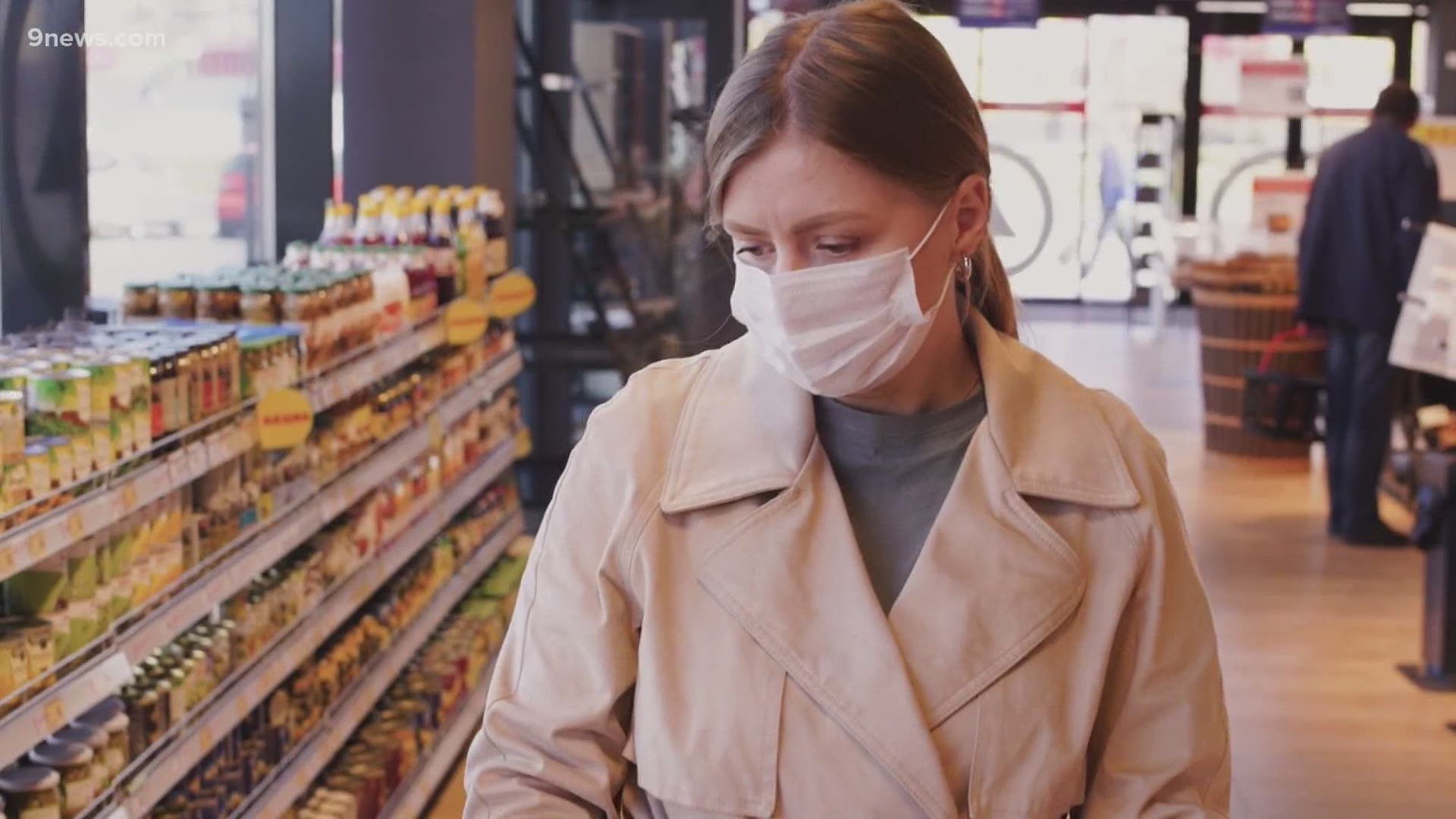DENVER — We're all taking extra precautions to protect ourselves from contracting coronavirus at the grocery store.
Those actions include shopping at off-peak hours, wearing a mask and gloves, and washing your hands when you get home, but what about the groceries themselves?
Experts agree the novel coronavirus is not a foodborne illness, however, if a sick person coughed or sneezed on a container it could live on cardboard for up to 24 hours, and other surfaces like plastic and steel for several days, according to the CDC.
So it’s not a bad idea to wipe cans and plastic containers or leave the package untouched for a few days. Of course, that would not be possible for items that come in porous containers, are wrapped in thin plastic, or that need to be refrigerated or frozen.
Washing your produce with warm water and rubbing it with your hands (think apples) should be sufficient for cleaning fresh produce. If you are really concerned, you can add some lemon juice or vinegar to the water. But it’s really not necessary.
Never wash your food with soapy water or a chlorine rinse. All chemical cleaning products come with Material Safety Data Sheets. What’s listed on them are the harmful side effects from inadvertent ingestion.
No amount of bleach or chemical disinfectant is safe to ingest, nor is it safe to wash your food with it. In fact, doing so could cause a slew of other symptoms like abdominal pain, nausea, vomiting, and chemical poisoning.
Vegetables grown in the ground (potatoes, carrots) can be washed with a scrub brush, fruits with a strong outer skin (apples) can be rinsed and rubbed with your hands, more delicate items (berries) can be rinsed with a gentle spray, and herbs and lettuces can be soaked and rinsed to get rid of debris and any bacteria.
Dry your herbs on a paper towel before storing them in the refrigerator.
These are good practices to use in normal times to avoid E. coli and Salmonella. Always wash your hands before and after handling food, and wash surfaces with warm soapy water.
SUGGESTED VIDEOS: Recipes and DIY

